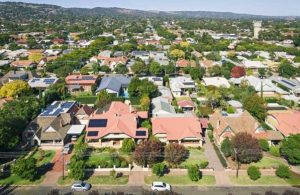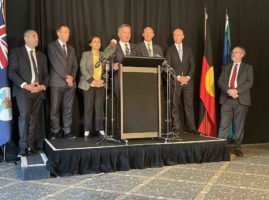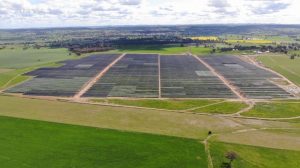The Energy Security Board’s proposed package of energy market reforms, promoted as a landmark redesign of Australia’s electricity market, has not gone down well with the renewable energy sector, which says it will delay new projects and entrench the dominance of fossil fuels.
ESB chair Kerry Schott delivered the proposed package to state and federal energy ministers this week – but leaked copies of the recommendations that began circulating on Wednesday, drew outrage from clean energy investors because they endorsed controversial a plan to benefit incumbent coal generators, despite near-unanimous opposition.
The major point of contention is around the physical retailer reliability obligation, amounting to an effective capacity market designed to boost the income and delay the exit of ageing coal and gas generators. Critics say it will stymie new investment in wind, solar and storage projects.
Simon Corbell, the CEO of the Clean Energy Investor Group, which represents major local and international investors, said the proposed reforms would worsen already distorted market signals, preventing new clean energy investments needed to replace Australia’s ageing fleet of coal generators.
“A Physical Retail Reliability Obligation (PRRO) with a capacity market means thermal generation will be encouraged to stay in the system longer,” Corbell said in a statement.
“This further compounds the risks faced by investors in committing to new clean energy projects due to grid congestion and connection delays.
“Australia does not have an agreed plan for the exit of thermal generation from the NEM. A PRRO will add to this uncertain investment environment and increase risk as a result.”
Chief executive of the Smart Energy Council, John Grimes, described the proposed reforms as “disastrous” and would ultimately lead to higher electricity prices by imposing new costs on consumers to prop up ageing coal plants.
Grimes said the industry body would look to take up the issues as part of a campaign in the lead up to the next federal election.
“This is a disastrous proposal from Angus Taylor and the Energy Security Board and must be rejected by Energy Ministers,” Grimes said. “These proposals will increase power bills, reduce energy security and prolong the life of unprofitable, polluting coal-fired power stations.”
“Why on earth would you pay coal-fired stations to keep operating when we should be encouraging clean, zero emissions, job creating renewable energy?”
“If Angus Taylor wants to push this agenda, we will happily campaign on this issue right up to the federal election. Paying thermal generators just to be there, is a net wealth transfer from customers to ageing fossil fuel generators for not much benefit.”
The creation of the PRRO would see large ‘dispatchable’ generators paid to remain available in the electricity market, even if they don’t end up generating any electricity.
Only two major energy market participants indicated their support for the proposal – EnergyAustralia and Delta Electricity, both of which operate coal fired generators. They argued it was needed because the financial viability of coal generators was being eroded by the growth of lower-cost wind and solar.
According to submissions made to the Energy Security Board’s consultation processes, most energy market participants were opposed to the capacity market proposal.
Almost literally every stakeholder is opposed to the ESB's idea for capacity payments to coal (see table), but it still gets officially put forward. Hope @LilyDAmbrosioMP @Matt_KeanMP and others don't back this. https://t.co/TcfC57m2tT pic.twitter.com/2hSlF96ri5
— Nick Aberle (@NickAberle) July 28, 2021
Iberdrola Australia’s general manager for energy policy and planning, Joel Gilmore, said that it was disappointing that the Energy Security Board had embraced financial incentives to keep fossil generators in the market.
“The ESB has apparently recommended a physical capacity market – paying generators simply for being in the market, regardless of their flexibility or emissions, and undermining the incredibly strong performance obligations of the NEM.
“This will be costly for consumers, and all the evidence so far is that it’s incompatible the transition to a flexible, diverse, and more reliable fleet of technologies,” Gilmore posted on LinkedIn.
“It’s frustrating: if the ESB was genuinely committed to the renewable transition proposed by the new AEMO CEO, they could be doing great work getting the grid ready. Instead, they’re looking in the rear vision mirror.”
The Australia Institute took a more conciliatory approach, focusing on the expanded role and powers of state governments to be able to guide investment in new renewable energy projects, which it says has the potential to push coal plants out of the market.
“As with the Covid pandemic, it is the states that are making plans in energy and sticking to them. The Federal Government has failed to take charge of the clean energy transition so states have stepped into the vacuum,” the Australia Institute’s energy & regulatory lead, Dan Cass, said.
“Building out the state renewable energy zones is what will provide Australia with energy security as coal power stations increasingly fail and retire early.”
“The National Electricity Market is run by the states so it is the state energy ministers who hold all the cards, and Federal Minister Angus Taylor will need to collaborate and negotiate with them.”










